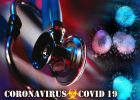Holistic health refers to a philosophy of medical care that views physical, mental, and spiritual aspects of life as closely interconnected and equally important approaches to treatment. While frequently associated with alternative medicine, it is also increasingly used in mainstream medical practice as part of a broad view of patient care.
History
Holism as a health concept has existed for ages outside of academic circles, but only relatively recently has the modern medical establishment begun to integrate it into the mainstream health care system. In the United States, the first National Conference on Holistic Health was held with the University of California, San Diego School of Medicine in June 1975.
Philosophy
Holism refers to the idea that an entity is greater than the sum of its parts. In the case of health, the entity in question is the human body. Holistic concepts of health and fitness view achieving and maintaining good health as involving more than just taking care of all the various components that make up the physical body—attention must be paid to aspects such as emotional and spiritual well-being as well. The goal is a wellness that encompasses the entire person, rather than just the lack of physical pain or disease.
Holistic health is not itself a method of treatment, but instead an approach to how treatment should be applied. Traditional medical philosophy approached patient care as simply attempting to correct physical symptoms, using standardized methods such as the prescription of drugs or the undertaking of surgery, while the patient is only passively involved. In contrast, holistic approaches to health are wide and varied. When the concepts of holistic health are put into practice within the health care system, the approach to therapy takes on a new dimension; traditional medical care is expanded to encompass a broad spectrum of therapies coordinated to meet the totality of a particular individual.
The focus is no longer on just the disease, but the whole person. The role of the patient also changes in learning how choices, actions and attitudes affect the present condition, and how one can be an active participant in the healing process.




